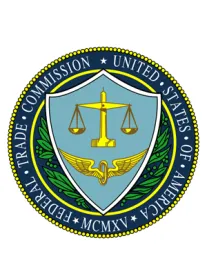Andrew Smith, the head FTC attorney of the Bureau of Consumer Protection for the FTC, recently commented upon the challenges the Federal Trade Commission now faces from defendants seeking to narrow the FTC’s broad enforcement authority, including the ability to obtain equitable monetary relief under Section 13(b) of the FTC Act.
Three cases now pending Supreme Court review have the potential to significantly threaten the FTC’s enforcement authority.
One case will resolve an analogous issues, to wit, whether the Securities and Exchange Commission may obtain disgorgement under federal securities statutes, or whether such relief is punitive in nature. The others will decide whether Section 13(b) precludes the FTC from obtaining equitable monetary relief.
Recently, Axon Enterprise, Inc. filed a complaint against the Federal Trade Commission in an antitrust matter seeking a declaratory judgment in the District of Arizona. The complaint alleges that the FTC’s administrative procedures and structure are unconstitutional, and seeks to enjoin the FTC from pursuing an administrative enforcement action.
In January 2020, the FTC filed an administrative complaint against Axon challenging its consummated acquisition of a competitor. The FTC also challenged non-compete agreements that were executed in connection with the acquisition. If such agreements are not narrowly tailored to achieving a legitimate business interest, an FTC attorney may challenge them as anticompetitive.
The issues now, however, is that Axon seeks to advance an argument that the FTC’s administrative procedures are unconstitutional on due process grounds because it acts as the prosecutor, arbiter and jury. According to Axon, an FTC administrative proceeding will result in it having to “submit to a hearing process with a preordained result.” FTC defense lawyers have attempted to advance similar arguments in the past.
Axon also alleges that the structure of the FTC violates Article II of the Constitution. By way of background, FTC Commissioners and Administrative Law Judges cannot be removed at-will by the President. FTC Commissioners may only be removed by the President for “inefficiency, neglect of duty, or malfeasance in office.” Administrative Law Judges can only be removed by the FTC for “good cause.”
As alleged by Axon, because FTC commissioners and ALJs exercise law-enforcement power, they are constitutionally required to be subject to at-will removal by the President under Article II. In response, the FTC has argued that the district court lacks jurisdiction over Axon’s claims.
Stay tuned.




 />i
/>i

